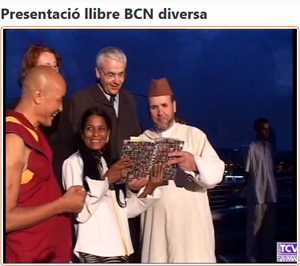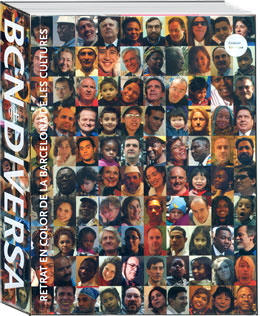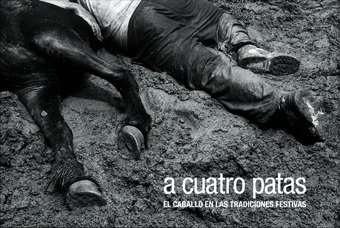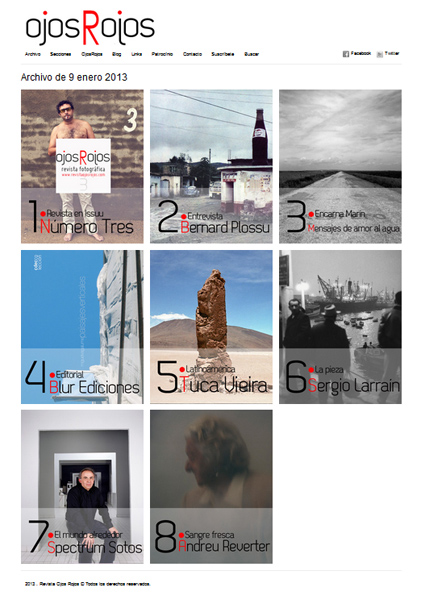Publications
Tra le principali pubblicazioni ricordiamo
“BCN Diversa, retrato en color de la Barcelona de las culturas”, 2003 a cura del comune di Barcellona, con l’introduzione di Rosa Regàs, direttrice della Biblioteca Nazionale di Madrid. Interviste al cuoco Ferràn Adrià, agli scrittori Manuel Vázquez Montalbán e Maruja Torres, alla direttrice di cinema Isabel Coixet, al direttore del’Institut Europeu de la Mediterrània Andreu Claret, ai giornalisti Joan Barril e Asha Mirò, agli architetti Benedetta Tagliabue, Oriol Bohigas e Juli Capella; ed al disegnatore Javier Mariscal fra tanti altri.
ramonubeda.com/proyectos/bcn-diversa/

Video
“A cuatro patas”, 2005
R.S. Editor, Tarragona, con introduzione di Maria Angeles Sánchez, direttrice della sezione “ El Viajero” del giornale El País.
The Essence of Water
We live between forgetfulness and memory, in hidden spaces full of wrinkles and traces deposited in some place in our brain.
Among those wrinkled folds lies our identity subsumed into the individual or collective unconscious.
Memory is the essence of existence of an individual as a spiritual being and is necessary both in order to preserve the past and to recognise it.
It represents the continuity of the person, the fundamental reality, the awareness of pure duration.
Humans are the beings that have memory, that preserve the past and bring it up-to-date in the present, so we have history and folklore.
Therefore, it is not just the knowledge of past events but the effective reliving of them, even if there is no awareness of them previously, as a present experience which carries in itself all or part of the past.
The barriers between memory and forgetfulness are slight, one only has to let the river of memories and remembrances flow in order for memory to simplify and advance in the water, with geography as a meeting point, like a return to the first forgetfulness.
Because memory is full of forgetting.
Andreu Reverter
A passion for festivals
He is a calm person and talks quietly. His gentleness, however, hides a tenacity that withstands the strain of time, effort, miles, loneliness and inclement weather. He has pursued his objective for years: the photographic portrayal of popular festivals, work and traditions where horses play an important role. The result is the book you have in your hands.
“Travelling, listening, watching and getting to know the soul of other people allows me to know my own soul better,” says Andreu Reverter. In the end, as happens for many of us who love these festivals and have become closely involved with them, the heritage of men, women and centuries becomes almost a path to initiation; and it certainly turns into a way of life.
One can only understand Andreu’s photography through passion. And only through the strength of his convictions, the search for -and, very often, the discovery of- a way of observing. What is photography if not observation, light?
The pictures in this book do not just try to reflect reality. They go far beyond that. This is reality but reinvented, edited, interpreted, sifted through the mesh of a man in love with his work and with the subject of his work.
The South parades through his pages. The southern part of the north, perhaps, but also the northern part of the south. That area that goes beyond limits, borders, the prior and fictitious geographical boundaries that have been established.
More than Spain and Portugal, more than France, Italy, Morocco, Tunisia, here are human beings, horses, work, festivals. And all the emotions that come from infinite combinations of these elements.
We see them in action in the varied activities entailing horses, from the rapa das bestas in Galicia to the many fairs and rodeos where traders buy and sell.
We see wild animals trotting freely in the mountains or the marshes of various rivers; but also we see them tamed, helping in different tasks.
We see them in close company with nomadic herders and in the middle of the apparent chaos of round-ups in the open country.
We see them in water and immersed in flames; in the silence of the night and surrounded by the uproar of blunderbusses and rifles.
We see them competing in speed and agility, or posing proudly with their riders.We see them in the midst of crowds or in the misty solitude of the moors.
We see them dirty, mud-splattered, sweating, covered in ticks, but also in all their fine trappings, saddled up, with their manes carefully braided, artfully decorated.We see them, in sum, as an irreplaceable part of ancient celebrations, in Easter Week processions that look like a something out of a historical blockbuster -with the inevitable two-in-hand and four-in-hand chariots- or galloping to save a child king beseiged by his ambitious uncle.
We see the work, the hardship and effort, and we also see the joy and beauty, the music, dance, wine and festivities.
This is all wonderfully alive as we live through the dawn of the globalised third millennium, even though some people do not want to watch, do not want to see this, blandishing a false, restrictive, exclusive modernity.
With this book, Andreu Reverter has made his dream come true. And for those of us lucky enough to share the same dream, he leads us through it by the hand.
María Ángeles Sánchez
Directora de la sección El Viajero de El País
Revista Ojos Rojos
revistaojosrojos.com



